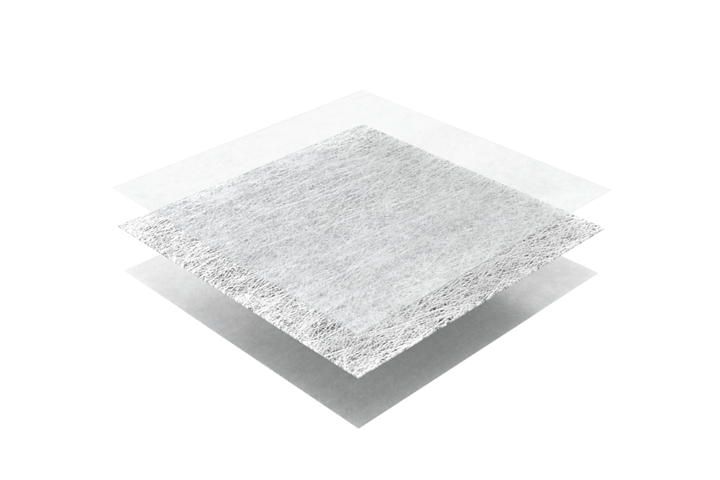Ilium FLEXmat fiberglass is suitable for pultrusion processes
Latest long chopped glass fiber reinforcement technology enables high temperature exposure, material stretching and chemical resistance, making it a safer cleaner option for pultrusion manufacturing.
Ilium Composites (Hidd, Bahrain) a global manufacturer of fiberglass structural composite reinforcements, is releasing its latest high-performing material technology for composite construction, industrial and marine utility applications. FLEXmat is a glass fiber pultrusion reinforcement supplied in 1,270-mm-wide rolls. It joins the company’s current offering of chopped strand mats and integrated veils for what is reported to be unprecedented composite safety and surface aesthetics.
FLEXmat is made from long chopped glass fiber and thermobonded between two lightweight polyester veils. The integrated veil reaches a high melting point of 180°C, making FLEXmat ideal for high temperature exposure during pultrusion processes. Its design also allows for a slower pull on thick profiles.
“FLEXmat continues to offer benefits featured throughout the company’s product line, including low cost, chemical resistance and no stitching,” Colin Leatham-Locke, business development manager at Ilium Composites, says. In addition, FLEXmat is thermobonded without stitching, requires no chemical binder, is multi-resin compatible and can incorporate other fiber reinforcements.
Produced in-house, FLEXmat is resistant to osmosis and hazardous chemicals, without the need for additional barriers. During processing, the reinforcement displays optimized wet and dry tensile strength that reduces the potential for material stretching. Moreover, cost is reduced through the elimination of secondary veils while maintaining the company’s signature surface finish.
Related Content
-
Plant tour: Albany Engineered Composites, Rochester, N.H., U.S.
Efficient, high-quality, well-controlled composites manufacturing at volume is the mantra for this 3D weaving specialist.
-
The lessons behind OceanGate
Carbon fiber composites faced much criticism in the wake of the OceanGate submersible accident. CW’s publisher Jeff Sloan explains that it’s not that simple.
-
Infinite Composites: Type V tanks for space, hydrogen, automotive and more
After a decade of proving its linerless, weight-saving composite tanks with NASA and more than 30 aerospace companies, this CryoSphere pioneer is scaling for growth in commercial space and sustainable transportation on Earth.














